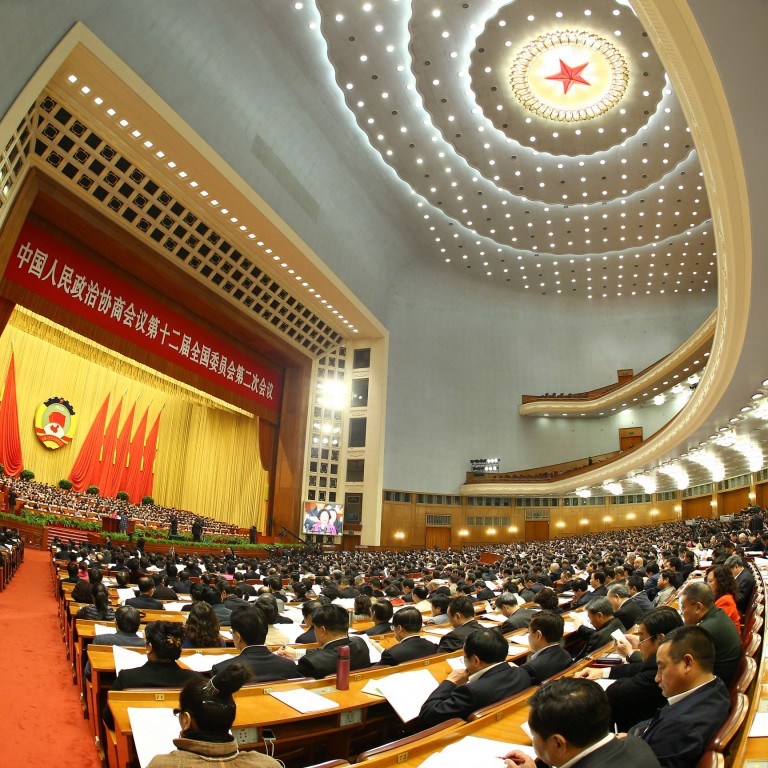
Disgruntled delegates urge party to give CPPCC more teeth
CPPCC delegates complain they have no influence over the legislature and their function within the political system is overdue for an overhaul
A group of academics with the Chinese People's Political Consultative Conference (CPPCC) have openly criticised the "weak" role of the advisory body, which they said had become a mere accessory to the National People's Congress.

"The CPPCC has been neglected for years," said Hou Xinyi, a CPPCC delegate from Tianjin and the Nankai University Law School's deputy dean.
"It is time to ask what kind of organisation we are and whether our proposals are well answered by the National People's Congress," he said during a meeting of the advisory body's social science panel in Beijing after the plenary session on Monday.

The CPPCC has 2,237 members from small political parties allied with the Communist Party, along with representatives from social and professional associations.
Other delegates at the meeting also questioned how effective such annual meetings were, and how seriously their proposals were taken by the NPC, the country's top lawmaking body.
Hou said "the public and the media only [single out] provocative statements by individual delegates", but there was no guarantee their criticisms would be taken into account.
Founded in 1945, the CPPCC was envisioned by the Communist Party and Kuomintang as the ideal channel for multiparty talks on political reforms following the second world war and became an advisory body starting in 1954.
Before 1954, it was the de facto legislature of China and lost much of its roles afterwards, according to Zhang Ming, an independent observer and professor with the School of International Studies at Renmin University of China.
One solution would be to downsize a large number of the delegates
"[Now, the] CPPCC is mainly a decoration - like a vase - to the NPC," Zhang said.
"It is not a real political advisory body. If the organisation really wants to be functional, it could try to only keep elite members [who] can impact policymaking."
Liu Jiayi, research director of the General Office of the CPPCC National Committee, agreed the conference had "veered off track" over the years from its original function as a supervisor of political affairs.

"[But] our limit right now is that we don't have a vehicle to carry out the supervisory function," Liu said.
"CPPCC members should discuss current politics and make themselves useful according to the constitution," Liu said.
Hou said there was a lack of communication between the public and parliament, the NPC and CPPCC, and among the advisory body's delegates themselves.
He cited time constraints within the two-week parliamentary sessions of the NPC and CPPCC, which didn't afford every delegate the chance to voice their own opinion.
"One solution would be to downsize a large number of the delegates and hold the conference separately from the NPC," he said.
To ensure the NPC was listening, he said, "it is also important to publish the answers of the NPC to delegates' proposals".

